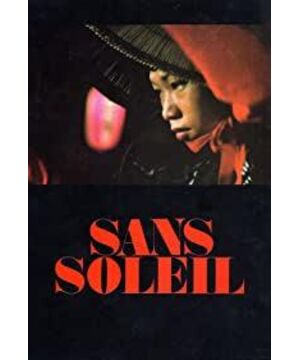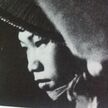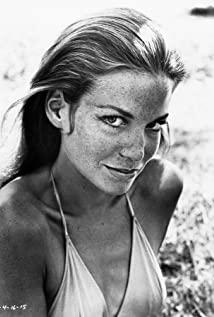Because I know that time is always just time and space is just space. - Elliott Chris Mark is a genius. In the opening credits of "No Light," Chris Mark wrote his views on the documentary in an unusually candid manner: "I'm not going to teach you the foolishness of making these women (women in New Guinea) pretend not to look at the camera like a film school. ." He believes that the director's presence and subjectivity in the documentary is indelible. In fact, no one can explore such depths as an intellectual and a pure "Western perspective" like him, and at the same time show his thinking process and all the connections of everything in the film. This is the greatest asset for the audience. 70 years later, Chrismark's footprints have crossed Iceland, New Guinea, Tokyo and Hong Kong, but his eyes are focused on Japan's booming economy. After the New Poetry Movement in the United States, Matsuo Basho and Bai Juyi became icons of the Imagist anti-British tropes. He is also fascinated by Matsuo Basho and Kiyosano. In his view, the Japanese can be divided into two categories, corresponding to violence (blood) and material sadness. The film consists of a captivating loop structure, Marlon Brando of Apocalypse Now, "You Must Be Friends with Fear," Japanese who are good at hiding secrets, and images of war like burning letters, nested and repeated. He wrote that Hiroshima's code name was Tiger, Tiger, Tiger. Xiaohu is also the name of the cat statue worshipped by the grandmother on the streets of Tokyo. Say the cat's name three times and everything will happen. In the 1940s, he wrote, 200 teenage girls stood by themselves with grenades to prevent capture by the trenches, where tourists took pictures and vendors sold grenade-style lighters. He watched the left, the right, the politicians, the demonstrations, the elections with alertness. How do these collective memories replace individual memories, he writes? A Japanese friend liquefied and distorted the images, which, he said, looked more real. He read a letter written by a Japanese youth from the kamikaze team who committed suicide: Japanese can only live forever if they can live comfortably. Then he went to Sahel, the desert at the end of the world, the sea at the end of the desert. There was the last lighthouse in the world that used kerosene as fuel, exactly the same as the one he remembered Joan of Arc staying at. His dog was so excited to chase the waves, and it was only later that he learned that it was New Year's Day, the first year of the year of the dog and the water sign in 60 years. And then he misses Tokyo in January, or images of Tokyo in January. How do human beings who don't take pictures, take pictures, and keep diaries remember? he asked over and over again. He put the clip of three girls in Iceland last because the picture in front of him trumped everything else. Five years later his friend Haron sent him a shot in the same place In the film that arrived, the volcano on the back of the small town he stayed in erupted, and the ashes scattered over the land where he had left his footprints. I can understand why Chris Mark is so attached to Japan, history and memory, the impermanence of all things and the world of appearances, the aggression of images and idols on the memory that builds human identity, and then feeds back into the image. There was no better place than Japan back then. When life and death are so close, Chris Mark can also approach the state he is most fascinated with, the tiled, island-like time. He wrote that among all the prayers to time and space, the most gentle one was the words that the lady at the Gotoku Temple said to her cat Xiaohu: "Cat, no matter where you are, may you be happy forever."
View more about Sans Soleil reviews










